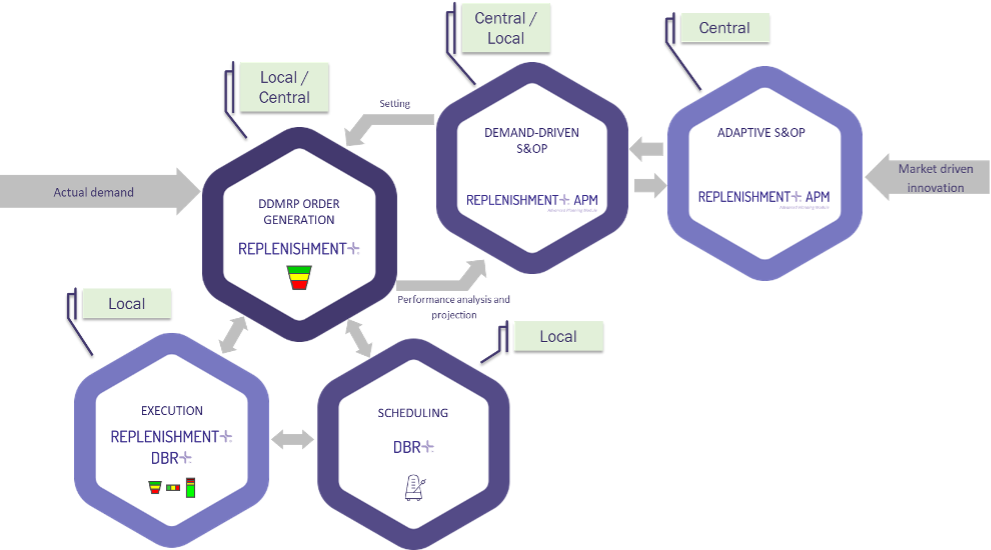Table of Contents
ToggleImpact of Digitalization on the Supply Chain
Digitalization is revolutionizing the supply chain by improving efficiency and transparency. By integrating technologies such as artificial intelligence, data analytics, and the Internet of Things, companies can optimize their processes and better meet market demands.
One of the main impacts of digitalization is the increased visibility of operations. Digital tools allow for real-time tracking of inventory, orders, and deliveries. This not only helps to anticipate problems but also to coordinate efforts among the different players in the chain, including suppliers, carriers, and distributors.
The fluidity of information exchange is also improved. Digital communication platforms enable instant data sharing, thereby reducing delays associated with manual processes. This shortens supply lead times and enhances responsiveness to demand fluctuations.
Moreover, digitalization facilitates the automation of repetitive tasks. With integrated management systems, companies can automate restocking orders, invoicing, and payment management. This frees up time for teams, allowing them to focus on higher-value tasks.
Implementing advanced analytics tools offers another considerable advantage. Companies can analyze historical data to draw insights and forecast future trends. This enables better planning and optimized resource allocation.
However, the transition to a digitized supply chain does not come without challenges. Companies must navigate issues of cybersecurity, ensure that their systems are compatible with new solutions, and manage change within their teams. Strategic support and adequate training are essential for successfully undertaking this transformation.
In conclusion, digitalization transforms the supply chain by making processes more efficient, responsive, and transparent. Companies that adopt these innovations can not only improve their operational performance but also strengthen their market position against increasingly connected competitors.
Optimization of Logistics Processes
Digitalization has a significant impact on the supply chain, changing traditional methods of managing the flows of goods. Companies are adopting advanced technologies to improve the visibility, flexibility, and efficiency of their operations.
By utilizing digital solutions, decision-making becomes faster and based on real-time data. This information allows supply chain managers to quickly respond to demand fluctuations and better manage inventory.
A crucial aspect of digitalization lies in the optimization of logistics processes. Companies are implementing automated tools such as:
- Transportation management software (TMS) that improves planning and execution of shipments.
- Warehouse management systems (WMS) to optimize storage and order preparation.
- Data analytics tools to predict consumption trends and adjust strategies.
These innovations not only reduce costs but also improve customer satisfaction by ensuring more accurate and faster deliveries. Additionally, digitalization facilitates collaboration among different players in the supply chain, promoting constant and effective information sharing.
Finally, companies integrating digital solutions into their supply chains strategically position themselves to meet future challenges related to globalization and changing consumer purchasing behaviors. Digitalization proves to be a key lever for creating resilient and responsive supply chains.
Improvement of Visibility and Traceability
Digitalization has a significant impact on the supply chain, altering both internal processes and interactions with partners and customers. Through the integration of advanced technologies, companies can now benefit from better organization and increased responsiveness.
One of the main advantages of this transformation is the improvement of visibility and traceability of products throughout the supply chain. Digital systems allow for tracking every step, from production to delivery, minimizing the risk of error and optimizing inventory management.
The benefits of this increased visibility include:
- Reduction of lead times: Instant access to information on delivery times and order status allows for better anticipation of needs.
- Improvement of responsiveness: Rapid detection of anomalies or delays facilitates immediate action.
- Increased customer satisfaction: Customers can track their orders in real time, enhancing transparency and trust.
Traceability, on the other hand, is essential for meeting regulatory requirements and ensuring product safety. Through digital labels and cloud-based management systems, companies can easily retrace a product’s history.
In summary, digitalization improves supply chain management by providing complete visibility and accurate traceability, thus facilitating smoother and more efficient operations.









